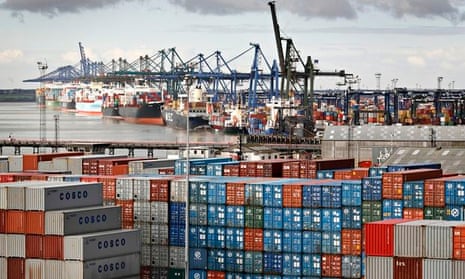The UK economy is a clear winner from the collapse in oil prices, which has delivered a “shot in the spending arm” for consumers, according to a leading economic forecaster.
Lower oil prices will keep the cost of the average shopping basket flat in 2015, putting more money in consumer pockets and driving economic growth higher than expected, the EY Item Club said in its winter forecast.
Peter Spencer, chief economic adviser, said: “The UK consumer has been lashed by rising fuel and food prices for so long, but is now the major beneficiary as these pull back. Individuals can look forward to a substantial increase in real earnings.”
He said the boost from the falling oil price was timely, coming just as the UK recovery appeared to be losing momentum.
The Item Club expects growth to accelerate to 2.9% this year, after 2.6% growth last year. Back in October, before the drop in oil prices was so sharp, it was forecasting slower growth of 2.4% for 2015.
The slump, with prices down by about 60% since last summer to less than $50 (£33) a barrel, is starting to feed through to UK petrol pumps. Consumers are also benefiting from lower food costs, partly driven by a fierce price war among the UK’s top supermarkets. Food prices fell by 1.9% in the year to December, according to the Office for National Statistics (ONS).
With inflation forecast to average zero this year, Item predicted the Bank of England will leave interest rates on hold at an all-time low of 0.5% until the first quarter of 2016, further helping household finances.
Real disposable incomes, those adjusted for inflation, are forecast to increase by 3.7%. Annual house price growth is expected to slow to 7.1% this year, from 10% last year.
Item said that while British businesses – particularly consumer facing companies – might do better this year than they originally expected, there were still risks to the outlook.
“Possible shocks from developments in the eurozone, the general election and business-specific risks such as changes in China – if this is a major destination for sales – must be taken into account,” said Mark Gregory, EY’s chief economist.
Item said falling oil prices were a positive offset to weak UK exports, but they were extending the country’s dependence on the property market, leaving the economy “seriously unbalanced”. The government has argued thatgreater reliance on manufacturing and exports and less on consumer spending would put the future of the UK economy on a more sustainable footing.

Comments (…)
Sign in or create your Guardian account to join the discussion